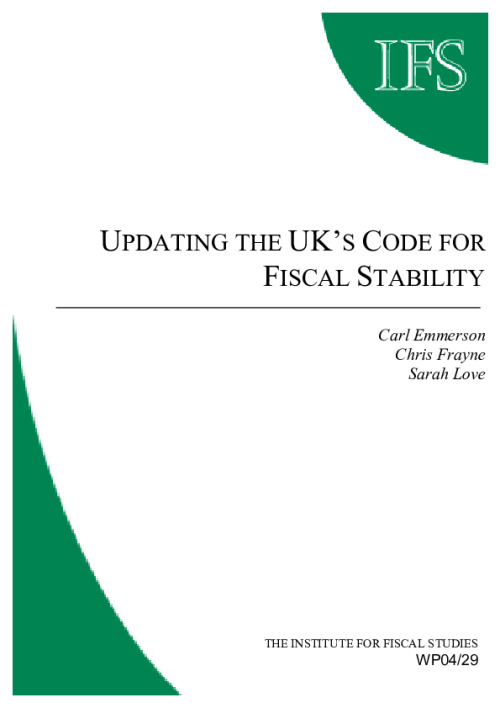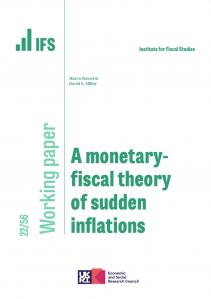The 1998 Code for Fiscal Stability sets out the framework within
which UK fiscal policy is now set. While having such a code does
not make it easier for a Government to meet its fiscal objectives, it
may improve the economic credibility of the policy process. To date
the Code has generally worked well, and in any case many of the
Treasury's practices exceed the minimum requirements of the Code.
However, improvements could be made in the light of recent
experiences. In particular it would be preferable for less emphasis to
be placed on the precise forecasts for fiscal aggregates and greater
emphasis to be placed on the magnitude of the risks to those
forecasts. Using the projections contained in the March 2004
Budget, and information on the size of errors made in the past, we
estimate that there is now a 60% chance that the Chancellor's
"golden rule" will be met without further tax increases or spending
cuts. This compares to 74% for the forecast made by the Treasury
12 months earlier. As well as clarifying how cautious forecasts are,
the uncertainty surrounding projections for fiscal aggregates also
has implications for the way in which progress towards any fiscal
rules should be interpreted.









